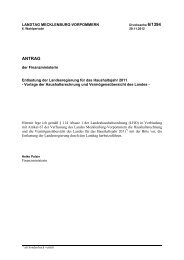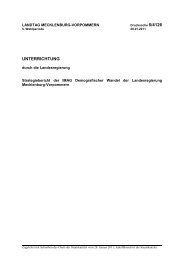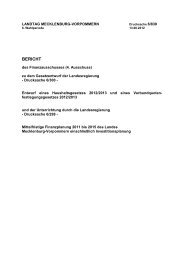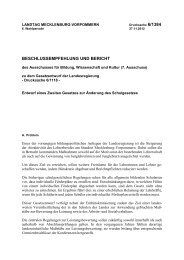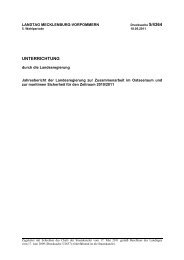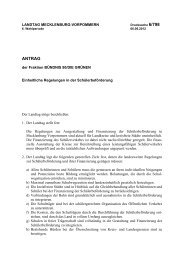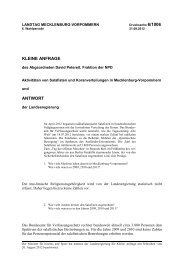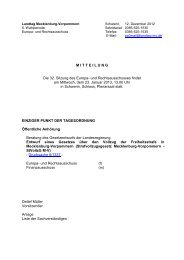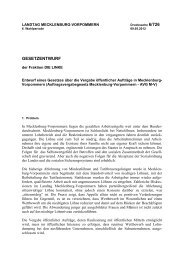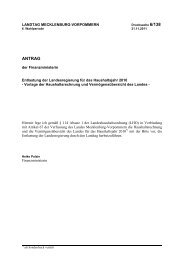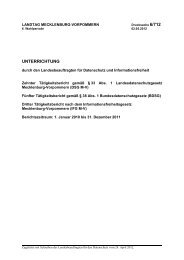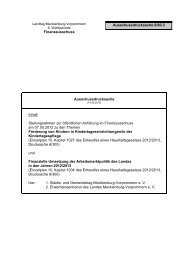Baltic Rim Economies - Baltic Port List
Baltic Rim Economies - Baltic Port List
Baltic Rim Economies - Baltic Port List
Create successful ePaper yourself
Turn your PDF publications into a flip-book with our unique Google optimized e-Paper software.
Expert article 855 <strong>Baltic</strong> <strong>Rim</strong> <strong>Economies</strong>, 21.12.2011 Quarterly Review 5�2011<br />
The new threats to Northern-Europe<br />
By Mart Laar<br />
It is largely known, that security in the <strong>Baltic</strong> Sea region has<br />
been concern to nearly all countries around the <strong>Baltic</strong> See.<br />
This has not been “the Sea of Peace”. For centuries the<br />
<strong>Baltic</strong> Seas has actually been “the See of wars”. Wars on<br />
the <strong>Baltic</strong> See were nearly permanent, devastating all<br />
countries around. Even on the times, when the<br />
confrontation was not “hot” as during the times of the Cold<br />
War, was all the area extremely militarized. Peace arrived<br />
to the <strong>Baltic</strong> See after the collapse of the Soviet Union. By<br />
now nearly all countries around the <strong>Baltic</strong> See had joined<br />
either European Union or NATO or both. For some time it<br />
looked so as history had ended for the <strong>Baltic</strong> Sea countries.<br />
This was a very naïve hope. By now history has<br />
returned to the <strong>Baltic</strong> Sea. Russia’s strong military buildup<br />
and rearmament program have made this clear to<br />
everybody. During next year Russia’s military budget will<br />
grow more as 20%. Kreml is demonstrating its muscles on<br />
every occasion, taking more and more confronting line<br />
towards NATO. Huge part of this military buildup is<br />
concentrating to <strong>Baltic</strong> Sea region, where Russia’s military<br />
strength is significantly increased. This does not include<br />
only agressive exercises, but also development of newest<br />
weapon systems here, including new missiles and radars. It<br />
is hard to say, why all this is done, but Russia is Russia.<br />
For the <strong>Baltic</strong> See countries this nevertheless means need<br />
for more cooperation.<br />
A month ago the Defense Ministers of <strong>Baltic</strong> and Nordic<br />
countries gathered to meeting in Örebrö in Sweden. In<br />
discussions participated also Defense Minister of Great<br />
Britain and high level representatives from United States,<br />
Germany, Netherlands and Poland. Soon this fact<br />
demonstrates clearly how far the cooperation among<br />
countries around the <strong>Baltic</strong> See and Northern-Europe has<br />
gone. Northern-Europe’s understanding of defense is not<br />
always similar to other EU countries. Several countries are<br />
actually swimming here against common European tide.<br />
Sweden is not anymore neutral country, but participating in<br />
international missions as in Libya. When in most countries<br />
defense budgets are going down, then in Estonia it will<br />
reach 2% from GDP. When many countries in Europe have<br />
given away their conscript army, then Finland and Estonia<br />
not.<br />
At the same time, countries gathered in Örebrö had<br />
very similar understandings in all main areas and<br />
questions, cooperation between then is strong and real.<br />
They also raised Europe’s attention to several new threats<br />
to our security in modern World. One of them is cyber<br />
threat.<br />
Only some years ago these threats looked mostly<br />
theoretical. By now they have become real. First this was<br />
realized by Estonia. Cyber attacks against Estonia (a<br />
country where we vote online in national elections and<br />
conduct 98% of our banking over the internet) in 2007<br />
nearly undermined the functioning of our society. Cyber<br />
attacks embody the fundamental trait of new security<br />
threats – they target our societies’ dependence on<br />
technology, trade and openness. They are a cheap and<br />
effective tool that advantage the attacker and can be used<br />
by states, criminals, terrorists, organized crime, and<br />
empowered individuals. Effective cyber security is not<br />
cheap and requires unprecedented cooperation between<br />
civil and military authorities, the public and private sector.<br />
3<br />
Europe’s comprehensive approach to security fits the<br />
threats we face from cyberspace, but the EU has been<br />
slow to react to changing circumstances. Member states<br />
policies could be far better coordinated. The EU has in the<br />
last year been victim to several embarrassing attacks in<br />
which gigabytes of sensitive data were lifted from<br />
Commission, Council and Parliament computers.<br />
At the same time cyber security issues are enormously<br />
important namely for Northern Europe. It is largely known<br />
that largely thanks to their fast development in e-area these<br />
countries are specially vulnerable to all possible cyber<br />
attacks. Recent cyber attacks against Finland with<br />
significant political context are sad example of these new<br />
threats. Strong e-development is at the same time strong<br />
asset to fight these attacks. When we can share our<br />
knowlidge and experience Northern countries can do lot of<br />
good not only for themselves but for all Europe.<br />
That was the reason, why in Örebrö was decided to<br />
start to work on Nordic cyber defense detachment, what we<br />
can offer when it is needed to European Common Defense<br />
and Security policy. At the beginning of the next year<br />
experts from the Nordic countries will arrive to Tallinn to<br />
NATO’s Cyber Defence Center of Excellence to prepare<br />
concrete steps toward common activities in the field of<br />
cyber security.<br />
Other fields of cooperation are also discussed among<br />
so called NB8. Both European Union and NATO are talking<br />
about the need to cooperate more. In NATO it is called<br />
“smart defense”, in EU “sharing and pooling”. NB 8 had<br />
done soon before they were called to do this. Common<br />
procurement – by example Estonian-Finnish radar<br />
procurement or cooperation in <strong>Baltic</strong> Defense College are<br />
only some examples how useful such common projects can<br />
be. In Örebro several other possibilities for enhanced<br />
cooperation were discussed, by example common<br />
exercises. This all can strengthen security around the <strong>Baltic</strong><br />
Sea and giving more possibilities to raise the share of NB 8<br />
in Europe. There has been lot of talk on economic or<br />
environment cooperation in the <strong>Baltic</strong> Sea area, now has<br />
arrived time to step up with the defense cooperation also.<br />
Mart Laar<br />
Defence Minister<br />
Estonian Ministry of Defence<br />
Estonia<br />
� Pan-European Institute � To receive a free copy please register at www.tse.fi/pei �



